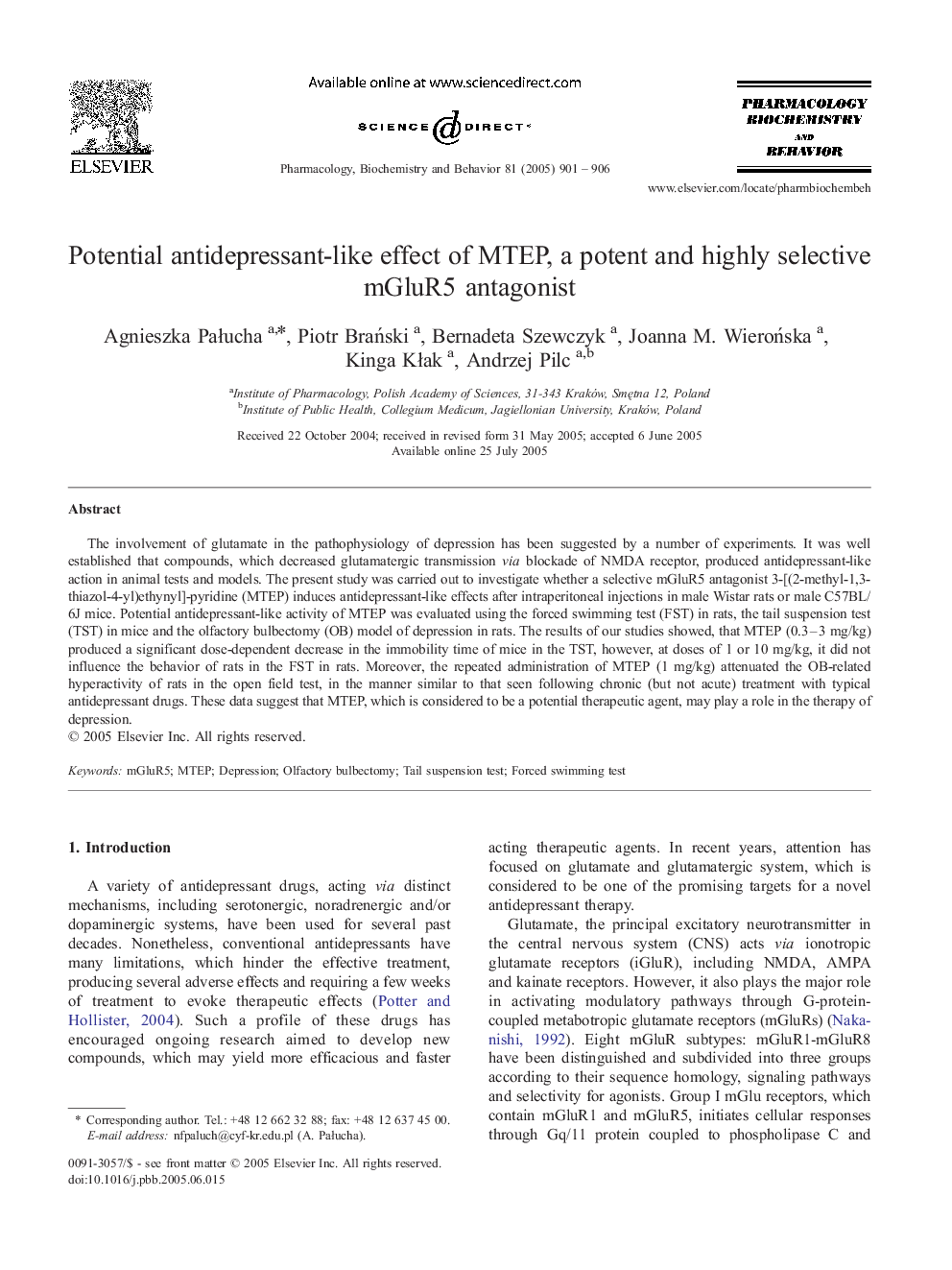| Article ID | Journal | Published Year | Pages | File Type |
|---|---|---|---|---|
| 10838562 | Pharmacology Biochemistry and Behavior | 2005 | 6 Pages |
Abstract
The involvement of glutamate in the pathophysiology of depression has been suggested by a number of experiments. It was well established that compounds, which decreased glutamatergic transmission via blockade of NMDA receptor, produced antidepressant-like action in animal tests and models. The present study was carried out to investigate whether a selective mGluR5 antagonist 3-[(2-methyl-1,3-thiazol-4-yl)ethynyl]-pyridine (MTEP) induces antidepressant-like effects after intraperitoneal injections in male Wistar rats or male C57BL/6J mice. Potential antidepressant-like activity of MTEP was evaluated using the forced swimming test (FST) in rats, the tail suspension test (TST) in mice and the olfactory bulbectomy (OB) model of depression in rats. The results of our studies showed, that MTEP (0.3-3 mg/kg) produced a significant dose-dependent decrease in the immobility time of mice in the TST, however, at doses of 1 or 10 mg/kg, it did not influence the behavior of rats in the FST in rats. Moreover, the repeated administration of MTEP (1 mg/kg) attenuated the OB-related hyperactivity of rats in the open field test, in the manner similar to that seen following chronic (but not acute) treatment with typical antidepressant drugs. These data suggest that MTEP, which is considered to be a potential therapeutic agent, may play a role in the therapy of depression.
Related Topics
Life Sciences
Biochemistry, Genetics and Molecular Biology
Biochemistry
Authors
Agnieszka PaÅucha, Piotr BraÅski, Bernadeta Szewczyk, Joanna M. WieroÅska, Kinga KÅak, Andrzej Pilc,
